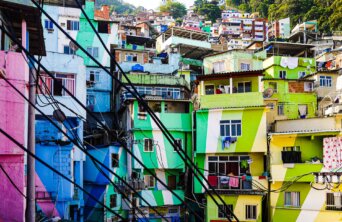- About
- Topics
- Picks
- Audio
- Story
- In-Depth
- Opinion
- News
- Donate
- Signup for our newsletterOur Editors' Best Picks.Send
Read, Debate: Engage.
| topic: | Health and Sanitation |
|---|---|
| located: | Brazil |
| editor: | Ellen Nemitz |
In 1990, Brazil made history by creating a comprehensive free healthcare system called SUS (an acronym in Portuguese), matched only by a few globally. Though a welcome development, the system had its flaws.
Due to the continental dimensions of Brazil, SUS offered a different experience for small remote communities compared with larger and more developed cities.
The system initially worked well: the nation had access to basic medical care, vaccines and even some treatments that would have been expensive otherwise.
But cracks in Brazil's health policies have begun to show over the past years, beginning with a decree that froze healthcare investments for 20 years in 2016 and followed by the dissemination of fake news that caused vaccination rates to drop.
Moreover, mental health care, which had mainly progressed earlier in the century following the implementation of the 1990 psychiatric reform, along with a model of humanised care that prioritised a minimum time of hospitalisation, patients' autonomy and health facilities near their homes, also suffered major setbacks.
In 2023, the health system's regression slowed, and health policies returned to the centre of democratic decisions. In early July, more than 6,000 civil society and government representatives gathered for the National Conference on Health, a collective discussion of health policies after a process in which nearly two million people participated in regional phases. Held in Brasilia, under the slogan "Guarantee rights, defend SUS, life and democracy - Tomorrow will be another day!", the conference brought significant advances.
The resumption of a program to hire physicians for the most remote places in the country, Mais Médicos (More Doctors), has been one welcome development for Brazil.
The program aims to bring basic health care to remote regions such as the Amazon, where people usually live without assistance. According to an official note, the plan is to have almost 30,000 new professionals taking care of 96 million people by the end of the year, especially those in more profound vulnerability.
One of the highlights of recent advancements is the 27 per cent increase in investment in the so-called Psychosocial Care Network (RAPS, in the Portuguese acronym), the internationally acknowledged policy for mental health dismantled over the past years by the diversion of financial allocations for asylum-like facilities. Besides the welcome financial backing for RAPS, the Ministry of Health has also been working on increasing the number of mental health facilities throughout the country.
Minister of Health for Brazil Nisia Trindade praised RAPS for examining mental health more closely. "This [regulation] is part of a much larger process. Without this reinforcement, we will not be able to make a difference in mental health with a humanised approach that considers each of the users of the SUS as citizens. We have long since abandoned the vision of guardianship for the vision of care and participation."
Photo by AXP Photography

